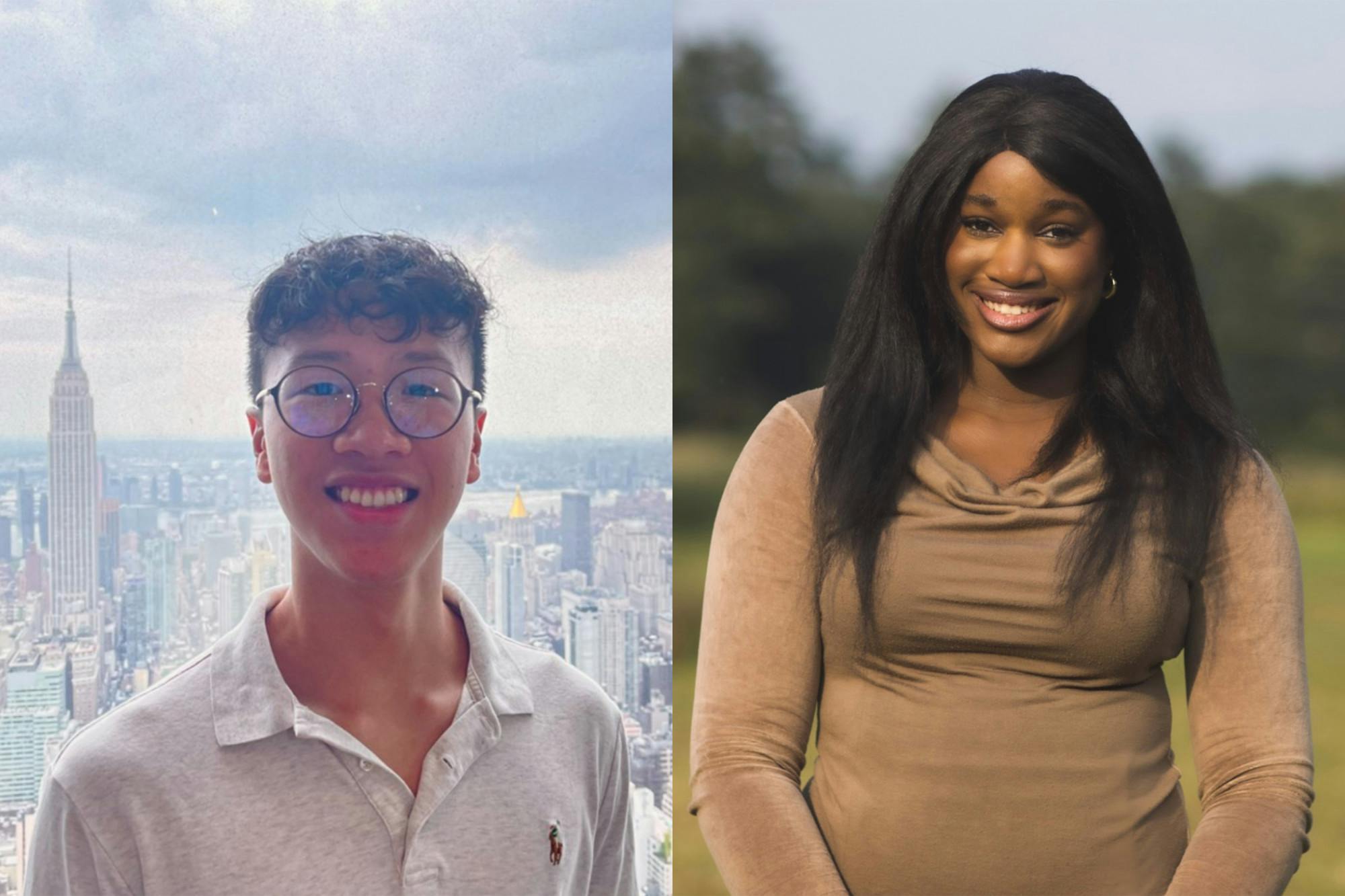On Aug. 22, Kenny Mok ’25 and Onyinyechi Owo ’25 were awarded the Obama-Chesky Voyager Scholarship for public service along with 98 other undergraduate students from across the country. The Voyager Scholarship, founded in 2022 by the Obama Foundation and Airbnb founder Brian Chesky, recognizes undergraduate sophomores “who can bridge divides” and help solve the world’s “biggest challenges,” according to the Voyager Scholarship’s website. Mok and Owo are the first Dartmouth students to ever win the award.
Assistant dean for fellowship advising Christie Harner said that the scholarship was created to recognize college students’ public service work.
“It was founded … to support people who wanted to expand their public service to better understand other parts of the United States and other parts of the world,” she said.
Harner added that students apply in the spring of their sophomore year by submitting a collection of essays, recommendations and a video response to a prompt. According to Owo, candidates participate in two to three rounds of application materials to narrow down the applicant pool.
“It was a long application,” Owo said. “They want to see that you’ve done things [related to public service], and they help you continue to do that.”
The scholarship provides up to $50,000 in financial aid, a $10,000 stipend and free Airbnb housing during the Summer Voyage, a global public service trip that scholarship winners attend during the summer between their junior and senior years of college, according to the scholarship’s website. Winners also have access to networking opportunities and leadership workshops, including a scholarship-specific Fall Summit, Harner added.
“The Fall Summit brings people together [to work on their projects] and then there’s a speaker series that makes [other recipients and mentors] available to have conversations over the course of the year,” she said.
Mok, a history modified with Latin American and Caribbean studies major and environmental studies minor, said he was “super excited” to win. With the support of the award, Mok added he is planning to research the “social aspect” of inequalities stemming from improper infrastructure in the wake of intense weather patterns.
“I’m extremely passionate about energy justice, energy quality and environmental sustainability,” he said. “I’m thinking of centering [my project] around how Europe dealt with their massive heat spikes over the summer.”
According to Mok, his interest in energy infrastructure and geopolitics was influenced by his upbringing in Puerto Rico. Mok added that Puerto Rico’s “weak” energy infrastructure stems from “inequality and poverty,” and that whenever there are natural disasters, families often lose access to energy.
“A lot of underrepresented communities are currently not able to afford their monthly energy bills, [as] Puerto Rico’s energy grid was privatized in 2022,” he said. “[That] makes it harder for the lower-income communities to survive and live in the places that they’ve been in for decades.”
Owo is a neuroscience and history double major and a global health minor. Although she said that she is unsure of the exact nature of her project, Owo explained that she wants to work with those who are dying in the underserved communities of low-income countries.
“[Dying] is a really scary time in your life,” she said. “The absence of hope is the end of life, and so I [wanted to] try to give these people some hope.”
Owo added that she found out about this scholarship through her own research on public service programs. She said she is planning on pursuing a career in the field.
“I’m really interested in public service,” Owo said. “I was looking for opportunities related to that, and I found out about this and put in my calendar a year in advance.”
Mok also said the scholarship is helping to direct him toward a future in public service.
“[I’m] definitely looking forward to the exposure to a ton of passionate individual peers who just love making change in the world,” he said.
According to Harner, the Obama-Chesky scholarship is one of only a “handful” of national scholarships for undergraduate students.
“[This scholarship] is filling a void [by] recognizing really great work that undergrads are doing,” she said.

My name is Sierra Sugarman '27, and I am from Pacific Palisades, California. At Dartmouth, I am majoring in Quantitative Social Science. In addition to writing for The D, I am involved with Dartmouth Consulting Group, Dartmouth Center for Social Impact, First-Year Trips, and Jewish groups on campus. I love doing practically anything at the beach, traveling, and spending time with friends.




